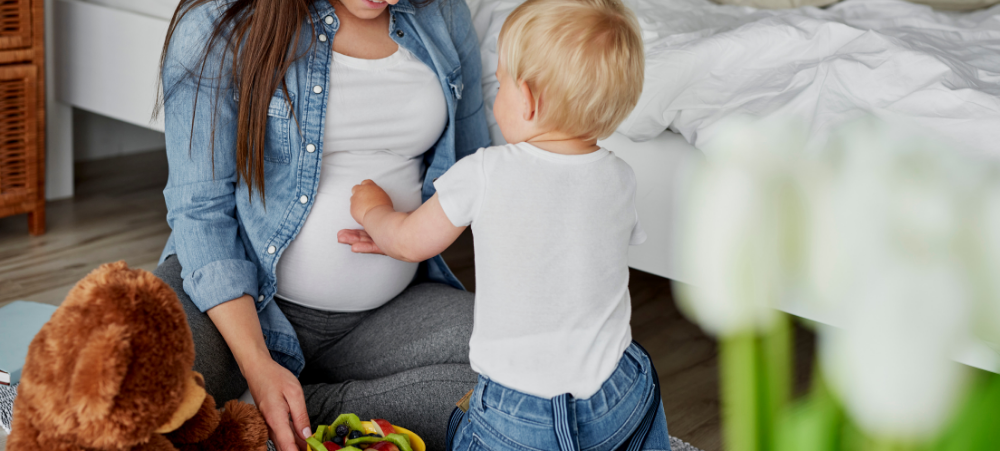Congratulations, you’re pregnant… again. And whether this age gap was planned or not, you’d like to continue breastfeeding your baby / toddler through your pregnancy.
Here’s what you need to know.
In most cases, breastfeeding while pregnant is completely safe but it is also a very personal decision with many factors to account for. What suits one family may not suit another.
During pregnancy, hormonal changes in the body can make breastfeeding a challenge. For one, you will most likely find that you are extremely tired or sick in the first trimester. This can make eating a healthy, balanced diet close to impossible. Your milk may taste different causing your older child to wean himself or you might find that your breasts and nipples become too sensitive to continue breastfeeding.
Something else to consider is that by the time you reach your second trimester, your body will begin to switch things up a bit. Instead of producing the volumes of mature milk that your child is used to, you will go back to producing colostrum for your new baby. Some toddlers are happy to continue drinking even though they are now receiving colostrum while others will flatly refuse and self-wean because of the new taste and composition of this ‘milk’. Taking the drop in volume or lost interest into account, it is important at this stage that you begin to supplement your child’s diet with an alternative milk source. Your choice of milk will depend entirely on the age of your child.
Cause for concern.
A big concern when it comes to breastfeeding while pregnant is whether the nipple stimulation from your older child suckling will cause you to go into pre-term labour. There is much controversy around this.
Nipple stimulation triggers your body’s production of oxytocin, which helps with milk letdown and also plays a role in the contractions you have during labor. But whether the amount of oxytocin released is enough to trigger labour or not, we do not actually know. This question is begging for a medical study and at this stage, there is none. However, preliminary data does suggest that breastfeeding and full term, healthy pregnancies are quite compatible.
It is important to realise that during pregnancy, the amount of oxytocin released in response to nipple stimulation is somewhat less than when a woman is not pregnant. Secondly, the uterus during pregnancy is not completely at the beck and call of oxytocin during the 38 weeks of the ‘preterm’ period. Even high doses of Pitocin (labour inducing drugs) is unlikely to trigger labour unless the uterus is ready.
As with any pregnancy, it is important that you are open and honest with your pregnancy care giver about your wishes to continue breastfeeding. There are most definitely cases where breastfeeding during pregnancy is not advised.
In conclusion, when making the decision to continue breastfeeding, it is wise to take into consideration how breastfeeding will fit in with your needs for rest, adequate pregnancy weight gain and your overall sense of well-being. It is also of utmost importance that you pay attention to your diet, drink plenty of liquids and keep taking your prenatal vitamins.
- Breastfeeding While Pregnant - March 19, 2024
- Why go for rice cereal when we have so many other delicious options? - August 27, 2014





